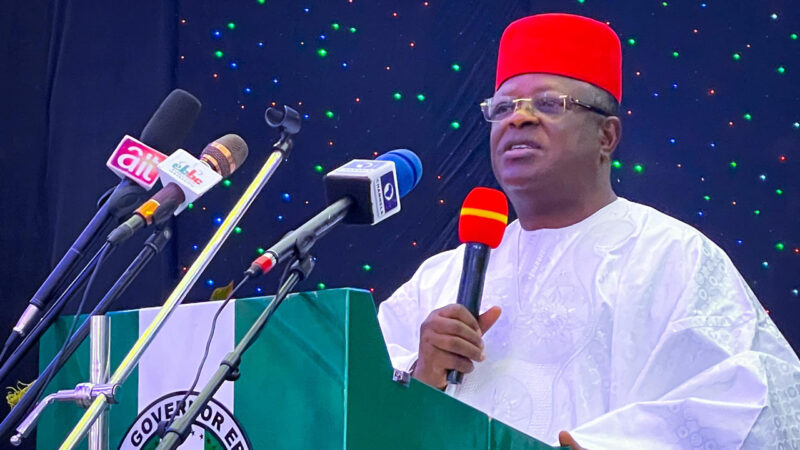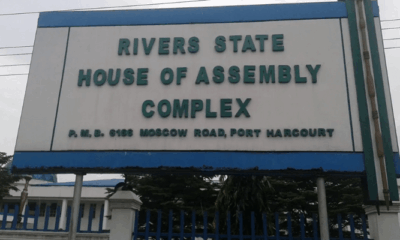Africa
Lagos-Calabar Highway: From a Cost Centre to a Self–Sustaining and Veritable Asset –By Adebayo Sodade
The project deployed 9 million workers and mobilised domestic builders and military engineers. One of the new technologies adopted on the Gyeongbu Expressway is the Hi-Pass automatic payment system, which has reduced the number of physical toll gates to less than 20 per cent. The Gyeongbu Highway revolutionised the travel experience by reducing travel time from Seoul to Busan from 15 to 5 hours.

The Lagos-Calabar Highway, under construction by the President Bola Tinubu’s administration, provides an opportunity for a paradigm shift from the traditional way of looking at road infrastructure as a ‘Cost Centre,’ ever demanding of public resources, to a self-sustaining model that could eventually contribute to public coffers. It is therefore necessary to look at every segment of the ‘road value chain,’ from project conceptualisation, road design, to road resource management, and put in place cost recovery and potential revenue-generating features, besides tolling.
The coastal highway is an ongoing 700-kilometre superhighway planned to connect Lagos to Calabar, in Nigeria, along the coast, passing through nine states and aiming to boost economic growth, trade, and tourism. The highway includes a 10-lane design with a provision for a railway line and multiple spurs connecting to other regions.
While the project is expected to bring significant economic benefits, the road designs should take into account potential revenue-generating features and areas of private sector involvement, including the provision of truck/car stopovers with mini marts, fuel stations, road museums, motels, police posts, restaurants, and health services, among others. Apart from the revenue aspect, this is intended to make road transport fun, safe, adventurous, and offer beautiful scenery, as well as possess historic and cultural values. With leisure activities, street lights, closed-circuit cameras, control towers, road kilometre markers, and security patrols, they could turn our highways into a 24-hour economy.
The South Korean Example
The 426–kilometer Gyeongbu Expressway from Seoul to Busan played a compelling role in the industrialisation and modernisation of South Korea. This is a significant legacy of President Park Chung-hee’s administration. The area connected by the freeway is home to 63 per cent of the nation’s population and generates 63 per cent of the nation’s Gross National Product (GNP) and 81 per cent of industrial output. The project commenced on 1st of February, 1968 at a total cost of 42.9 billion Won, amounting to almost 24 per cent of the nation’s total budget in 1967. Besides laying the foundation for economic growth and balanced national development, the project led to advances in South Korea’s indigenous construction expertise. This audacious undertaking by a then-struggling and impoverished nation catapulted local indigenous construction firms, such as Hyundai, Samsung, Daelim, Daewoo, and SsangYong, into the top-rated civil engineering market, with expertise in tunnel drilling, cable and super-long-span bridge construction, and eco-friendly technology, among other areas. The project deployed 9 million workers and mobilised domestic builders and military engineers. One of the new technologies adopted on the Gyeongbu Expressway is the Hi-Pass automatic payment system, which has reduced the number of physical toll gates to less than 20 per cent. The Gyeongbu Highway revolutionised the travel experience by reducing travel time from Seoul to Busan from 15 to 5 hours.
Lessons for Nigeria
To prevent the imminent emergence of shanties along the route, and maximize the socioeconomic potential of this and other massive highway projects being undertaken by the current administration, the federal government of Nigeria needs to collaborate with the contiguous states and take immediate possession of the road setbacks, right of way, and adjoining land areas for a carefully planned, functional and aesthetic land use. Areas of historical or cultural significance, ocean views and beaches should be harnessed for tourism. Such well-planned developments had led to the emergence of brand new cities elsewhere, such as Hollywood Beach City, Florida, United States of America. Hollywood is a beachside city located in southeastern Broward County, situated midway between Miami and Fort Lauderdale. Founded in 1925, it boasts a brick-paved coastal promenade stretching nearly 2.5 miles along the Atlantic Ocean. The boardwalk is lined with restaurants, cafés, bars, a children’s splash playground, unique shops, hotels, and motels from retro to modern.
While tolling is inevitable for such a capital-intensive project, the adoption of technology will go a long way in further reducing travel time and making commuters comfortable. The toll system on the Gyeongbu Expressway, op cited, (and Korean expressways in general) is quite structured and technologically advanced. Introduced in 2000, the Korean Electronic Toll Collection System, known as Hi-Pass (ETC), is similar to E-ZPass in the US and ETC in Japan. Vehicles equipped with a Hi-Pass device can pass through dedicated lanes without stopping. By 2010, Hi-Pass usage exceeded 70–80% of all expressway transactions. To further reduce congestion at tollgates, Barrier-Free tolls (Multi-Lane Free Flow, MLFF), using cameras and sensors to bill vehicles automatically by license plate recognition, are being tested.
Sodade is an author and a retired Permanent Secretary of Lagos State Ministry of Economic Planning and Budget.
























